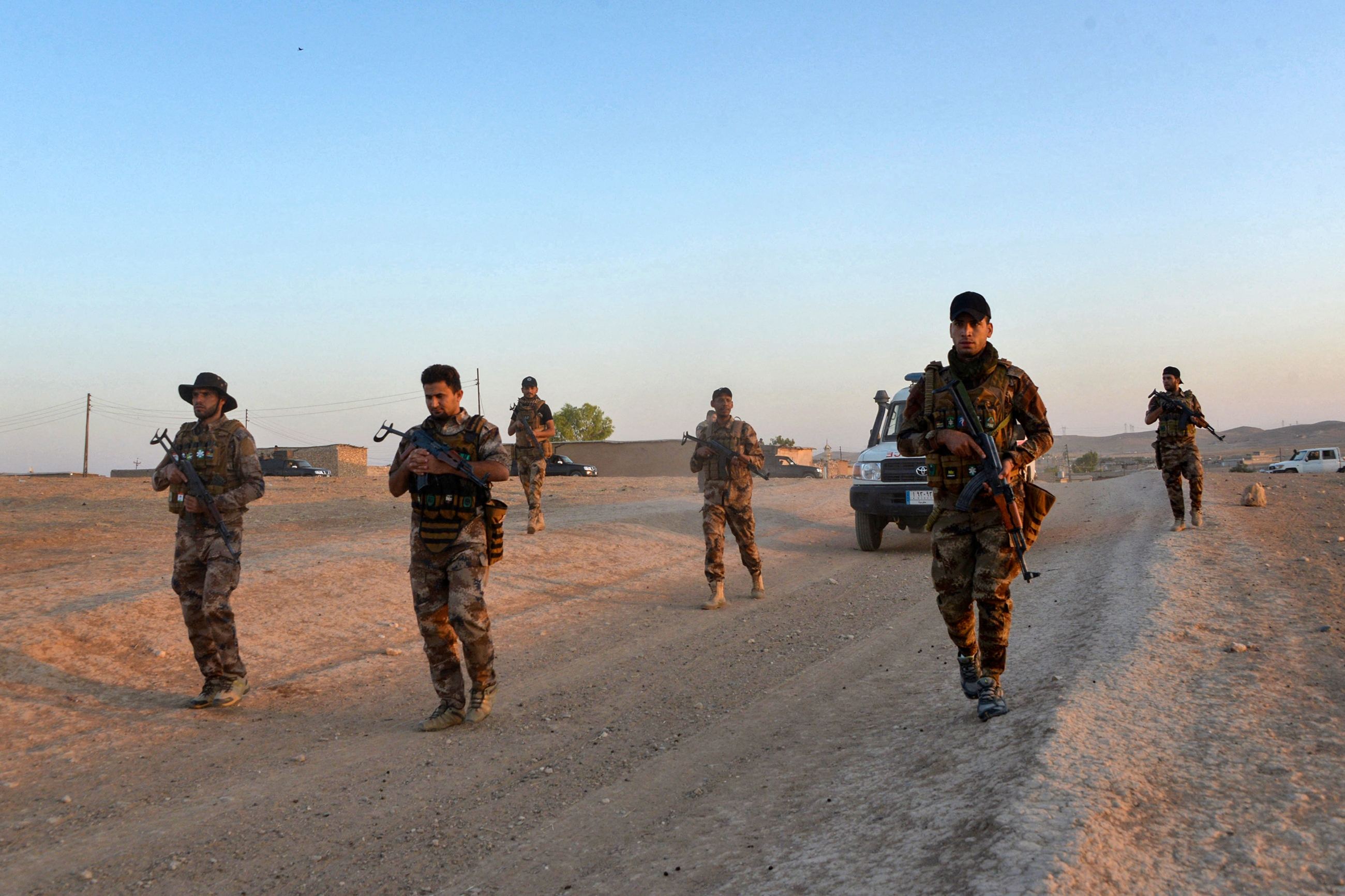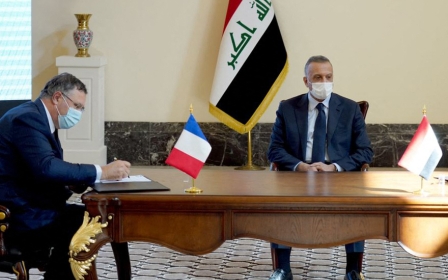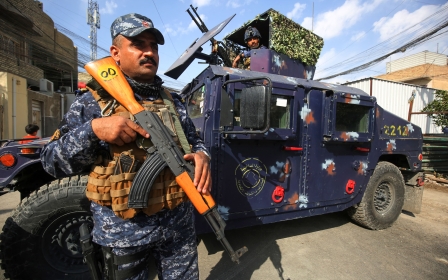Iraq's youth sceptical of proposed return of military service

It is a commonly heard proposal across much of the world when - usually older - people fear that the youth of their nation have lost their way, become effete and are failing to show proper pride in their homeland: bring back military service.
The latest country to face such calls is Iraq, where a draft law has already been approved by the prime minister that will see the reintroduction of conscription, which was abolished in 2003 after the overthrow of former ruler Saddam Hussein.
'It is unfair that rich people will pay money to not join the mandatory service while poor people, like me, have no choice other than doing so'
- Yousif al-Bedairy, Basra resident
Under the new law, people aged from 18-35 will be forced to join up, though the period of service will vary based on educational qualifications.
The announcement of the new law by Prime Mustafa al-Kadhimi on 31 August has already sparked accusations of militarism, while others feel it is just another attempt to distract from wider problems in the country in the run-up to the 10 October elections.
New MEE newsletter: Jerusalem Dispatch
Sign up to get the latest insights and analysis on Israel-Palestine, alongside Turkey Unpacked and other MEE newsletters
"If the government would like to strengthen ties of youths to their homeland, they should help them with opportunities, protect them, and give them their rightful rights, not by sending them to the military field," said 29-year-old Yousif al-Bedairy.
Bedairy, who is based in the southern city of Basra, told Middle East Eye he was the only person in his family who was currently working and it would be a struggle for them if he had to spend time in the military.
"It is not logical that the government one time says that the annual budget is not enough to [increase] recruitment of youths, while on another occasion they say that military service will solve the unemployment crisis. That is unbelievable," he said.
"It is unfair that rich people will pay money to not join the mandatory service while poor people, like me, have no choice other than doing so."
Consolidating 'national values'
Following the US-led invasion in 2003, the head of the Coalition Provisional Authority in Iraq, Paul Bremer, issued a decree dissolving the Iraqi army and opening the door for voluntary-based military recruitment.
The dissolution of the army - part of a US policy of rooting out Saddam loyalists across Iraq's institutions - proved hugely damaging as it threw around 400,000 people into unemployment and stoked resentment against the occupying forces.
Following the new conscription law's approval by Kadhimi, it will need to be put to parliament for approval.
Announcing the new law on Twitter on 31 August, the prime minister said it aimed to "consolidate national values in our young society".
He also promised to put forward a "Future Generations Fund" in order to "diversify" the economy.
Since coming to power in May 2020, Kadhimi has attempted to mollify young Iraqis who in their thousands have taken to the streets to protest widespread unemployment, corruption and a lack of services.
Apart from the dire economic situation, many Iraqis have also been highly critical of the armed militias who hold sway in much of the country and whose might is often seen as greater than that of the official army and security services.
The move to bring back military service in part stems from an attempt to bolster the power of the national army and create a sense of patriotic duty compared to the largely Iran-backed militias, but many young people fear it is simply an attempt to discipline them.
"The purpose of mandatory service is still vague, why do we need to serve in a country with over 300,000 soldiers?" said 23-year old Ahmed Ali, a Basra resident.
"I see the best way to build confidence to Iraqi youths is not by sending them to the military zones but by finding them jobs, and to do so, the government has to reopen the factories that were destroyed and are still out of service."
He said that passing the law would "send us back to the dictatorship era of Saddam Hussein, if not worse".
"Iraq is drowning in debts, failing economically in every aspect, so why do they put such a heavy weight on it with a thing [like mandatory military service] that can be postponed to when the country is back on its feet?" he asked.
Learning to face 'harsh conditions'
According to Badr al-Ziyadi, a member of the Security and Defence Committee in the Iraqi parliament, the vote on the law will not be taking place until after the 10 October elections in order to allow his committee time to review it.
"The youth with secondary school certificates should serve one year, the ones holding a primary school degree and below should serve two years, while others with a bachelor's degree serve six months, and three months for both Master and doctorate holders," he told MEE in a phone call interview.
'This law is so important in a time when some youths have effeminate features, others spend a long time on the internet and games'
- Bader Al-Ziyadi, Security and Defence Committee
Though he was critical of aspects of the law - particularly of a clause that would allow exemption from service if a fee was paid - he said it was important to instil a sense of loyalty, masculinity and order on what he saw as male youths lacking in all three.
"This law is so important in a time when some youths have effeminate features, others spend a long time on the internet and games," he said.
"They have to join the military to learn patience and how to face harsh conditions."
Among some older Iraqi men, most of whom experienced the draft during Saddam's reign, the prospect of restoring military service is an attractive one.
Ahmed Mohammed, 41, said joining the military service was a good step to enhance the capabilities of the youth and to learn future professions, as well as strengthening ties with their homeland.
"The young men will learn the values of manhood, discipline and obedience to orders, as well as the formation of real social relationships. Moreover, it will build the military institution on a national basis, not on a sectarian basis or with the interference of [political] parties," he told MEE.
"The military service had many positive things, one of them that I, as an engineer, learned how to practice my profession. Moreover, I am from the south of Iraq, Basra, and served the military service in Anbar province, west of Iraq, so the military unites all Iraqis regardless of where they are from, or their religions or background."
Middle East Eye delivers independent and unrivalled coverage and analysis of the Middle East, North Africa and beyond. To learn more about republishing this content and the associated fees, please fill out this form. More about MEE can be found here.





